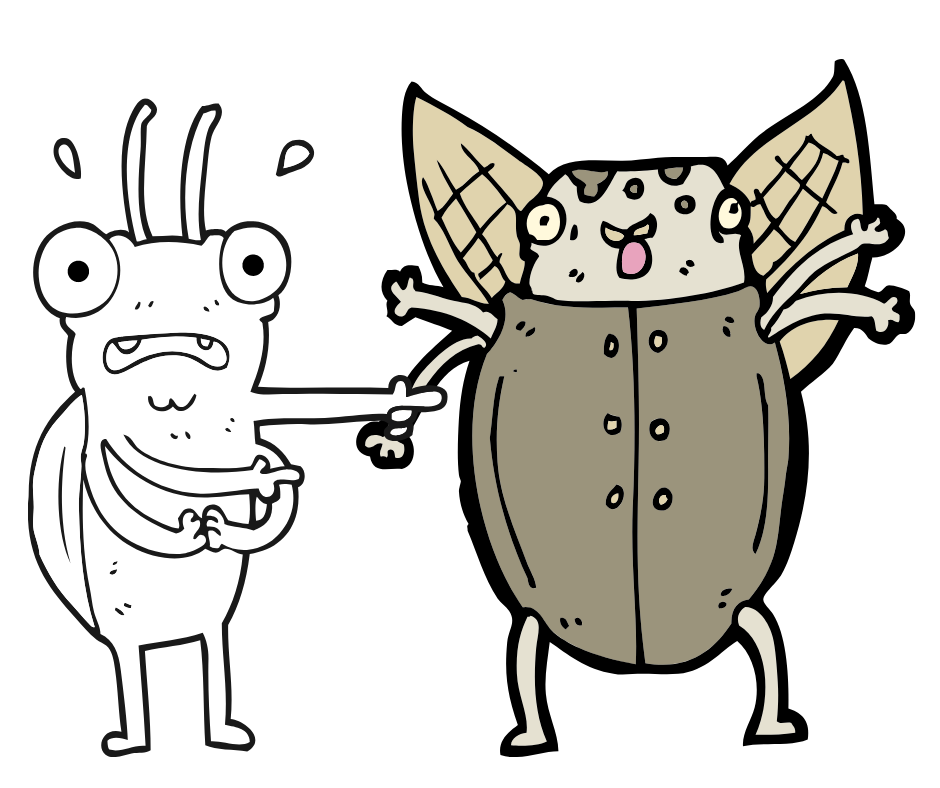How certain bacteria affect weight

Fat Bugs
&
Skinny Bugs!
As you probably know well by now, our gut bacteria (or gut flora) influence our health in many amazing and important ways.
Today’s Post concerns how:
- they affect how different foods are digested,
- they produce chemicals that help make us feel full, and
- certain bacteria’s connection with the ability or difficulty to lose weight.
How certain bacteria affect weight
What we eat is available to us and to the bacteria inside our guts, they digest parts of food we lack the enzymes to do, generating additional calories back to us.
New research shows that certain bacteria could have a large impact on our risk of being obese/ability to lose weight, the people who have a hard time losing weight, have abundance of gut bacteria type Firmicutes, which tend to be better at using carbohydrates and providing us with more energy (kjs). This is usually a good thing, as we need energy to fuel our bodies. But for some people trying to lose weight, this greater ability to provide energy may be a weight-loss more difficult. These “Fat Bugs” can lead to significant accumulation of body fat as well as impaired insulin sensitivity and increased inflammation. Obese people also have overall, less diversity in their gut flora than lean people.
On the contrary, lean people have a much more diverse gut flora with plenty of gut bacteria called Bacteroidetes. A decrease in these Bacteroidetes and increase in Firmicutes are linked with obesity.
One recent study found that mice that received a “gut bacteria transplant” from an obese person gained more weight and fat mass than those who received bacteria from a lean person. Additionally, the animals that received gut bacteria from an obese person had metabolic changes linked with obesity in humans while those that received gut bacteria from a lean person had metabolic changes linked with reduced body weight in humans.
Causes and what we can do
Lack of diversity in gut flora is caused by
- Poor diet (bad bacteria love sugar and typical unhealthy food)
- Food sensitivities
- Certain drugs (especially antibiotics)
- A bout of food poisoning or stomach virus
- Stress
Each bacteria have their own preferred diet. You can begin to increase good gut bacteria ratio by reducing refined carbohydrates, eating a good variety of fresh vegetables and healthy food, having high fibre intake, adding fermented foods to your diet and taking probiotics will help immensely.
Adding these good bacteria is not a one off approach. Your gut is like a forest with established plants along with weeds. A new introduced bacteria needs to fight for its place in the gut biome so continual inoculation with:
- Probiotics supplementation *
- Fermented foods, eg sauerkraut, kimchi, kombucha, kefir
- Prebiotic food – fibrous vegies eg chicory root, dandelion greens, jerusalem artichoke, asparagus, garlic, onions, leeks
- Resistant starch (green bananas cooked and cooled rice, oats)
- Fibre supplements (eg Fibergy, inulin, psyllium, round flax seed)
will help your good bacteria thrive and eventually starve bad bacteria making way for the new good bacteria to find a home and multiply into a healthy microbiome.
* Probiotics are easily destroyed in the acidic environment of our stomach that is why Usana Probiotic uses the 2 strains Bifidobacterium, BB-12® and Lactobacillus rhamnosus GG, GG® which are shown to survive the journey. I am not wise to other brands but you should make sure the strains can survive or they will be wasted on you.

Let me support, motivate and keep you accountable for your first 28 days to get you started with success. I’ll educate, nurture & guide you to a new, easy to follow, sustainable lifestyle that will get you feeling healthy, energetic and happy in your skin 😊 More info HERE

Rejuvenate, Restore & Reset with a 10 Day Cleanse. It’s full of delicious food & supportive supplements to help you gently flush toxins, support the liver, reduce inflammation & increase your energy levels More details HERE
More studies
- Several bacterial components and metabolites have been shown to stimulate intestinal satiety pathways https://www.ncbi.nlm.nih.gov/pubmed/27616451
- People with low diversity were more likely to be obese, have insulin resistance and elevated blood lipids, and increased levels of inflammation markers in the blood, all of which increase the risk of type 2 diabetes and cardiovascular disease. Those who were both obese and had lower bacterial diversity gained much more weight over the previous nine years. https://www.mayoclinicproceedings.org/article/S0025-6196(18)30148-4/fulltext
- A gut microbiota with increased capability for carbohydrate metabolism appears to be associated with decreased weight loss in overweight and obese patients undergoing a lifestyle intervention program. https://www.mayoclinicproceedings.org/article/S0025-6196(18)30148-4/fulltext
- Microbiome can influence metabolism https://www.ncbi.nlm.nih.gov/pubmed/27617197?dopt=Abstract&holding=npg
- Healthy mice have plenty of Clostridia (a class of Firmicutes) but those with an impaired immune system lose these microbes from their gut as they age. Even when fed a healthy diet, the mice inevitably become obese. Giving this class of microbes back to these animals allowed them to stay slim. https://www.sciencedaily.com/releases/2019/07/190725150401.htm
- High gut microbiome diversity, high-fibre intake and OTUs implicated in animal models of improved energy metabolism are all correlated with lower term weight gain in humans independently of calorie intake and other confounders. https://www.ncbi.nlm.nih.gov/pmc/articles/PMC5500185/
- Obesity is associated with phylum-level changes in the microbiota, reduced bacterial diversity and altered representation of bacterial genes and metabolic pathways. https://www.ncbi.nlm.nih.gov/pubmed/19043404
- Microorganisms play an important role in nutrient and energy extraction and energy regulation. https://www.ncbi.nlm.nih.gov/pmc/articles/PMC3601187/
